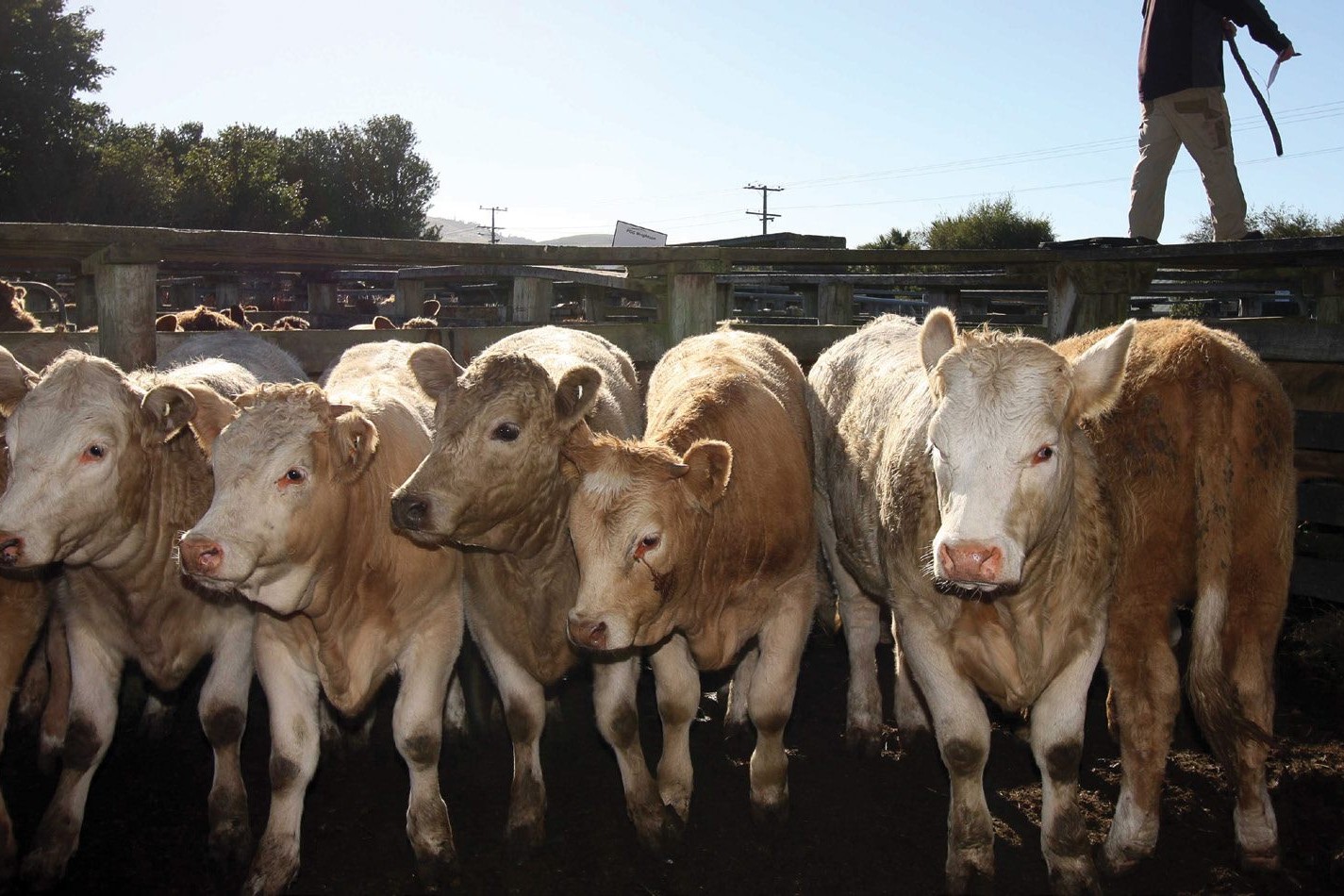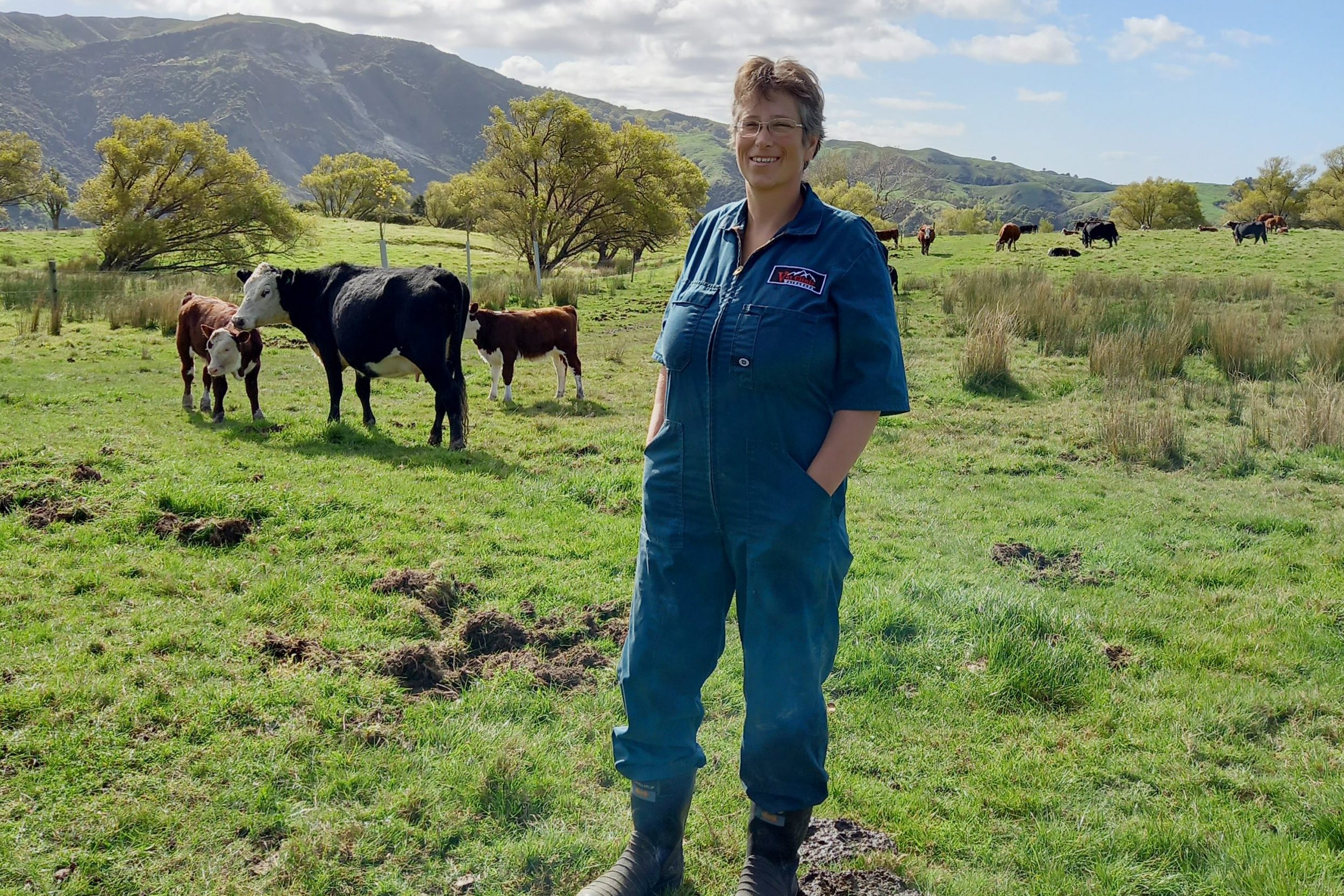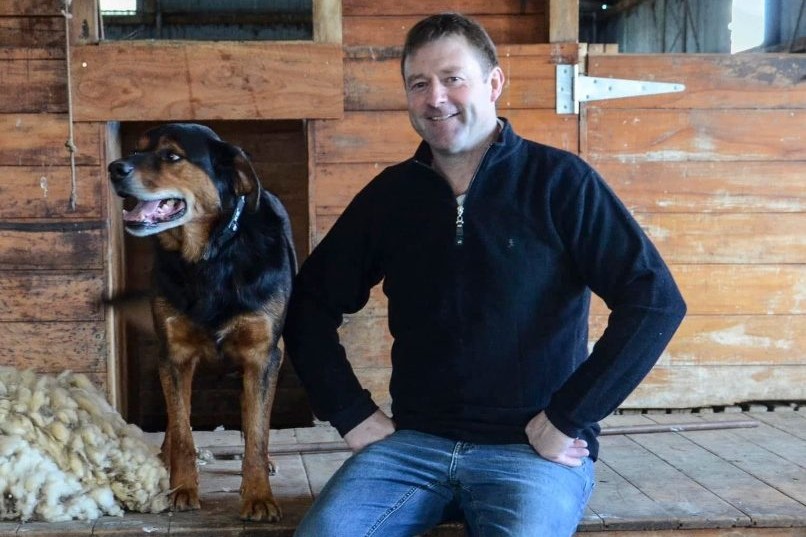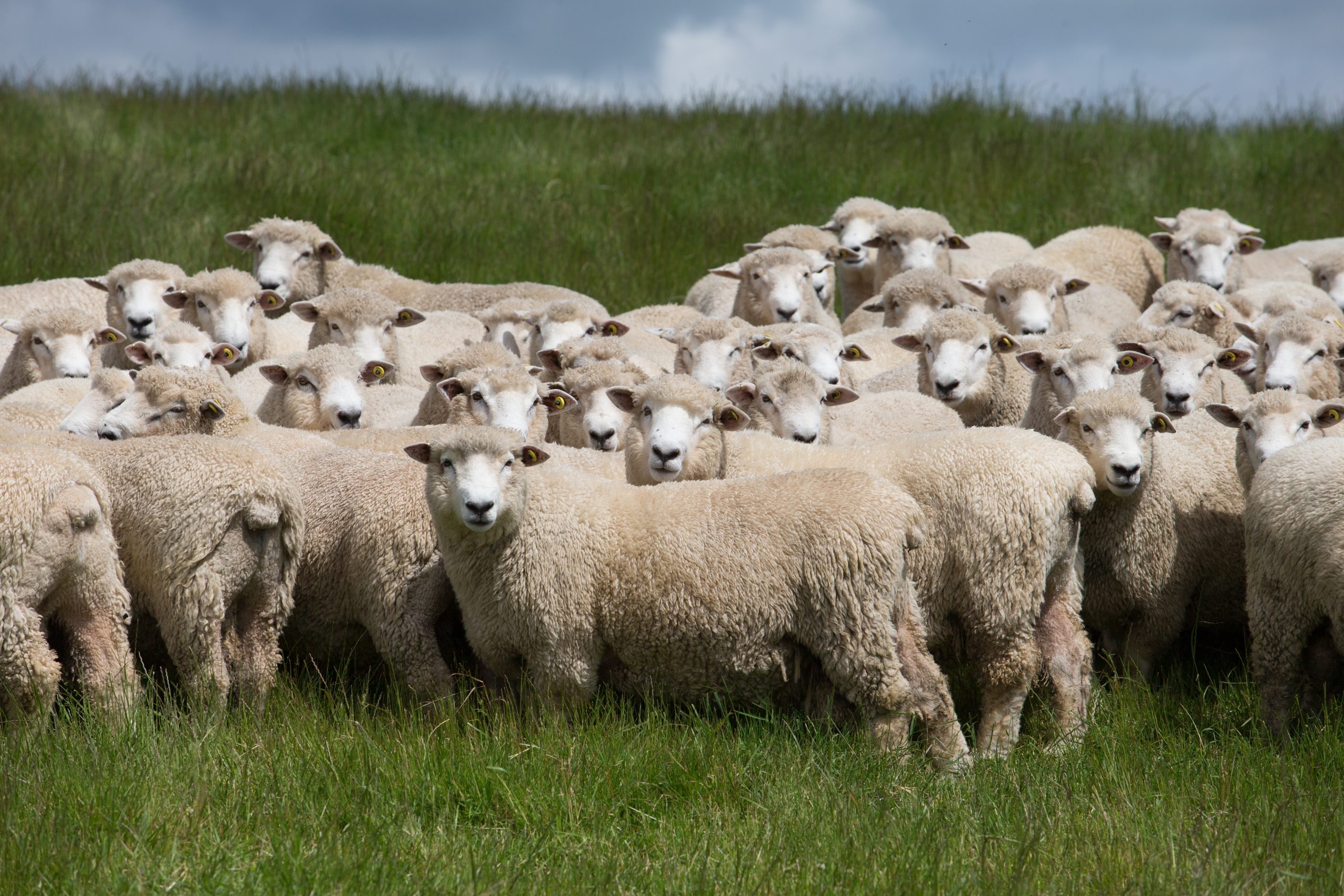Online options for buying and selling stock are experiencing greater uptake as it provides an extra tool, complementing more traditional methods of trading livestock. Rebecca Greaves reports.
At Temuka Saleyards, live streaming has been a new addition to complement selling through the ring for cattle.
Operations manager Noel Hewitson said cattle sales were live streamed for six weeks on view only, with the first sale accepting online bids taking place on Monday, October 11, 2021. The cattle sale featured 139 lots, and 17 pens were sold online, with a couple of bidders participating.
“We were always going to do it, probably Covid last year brought it on quicker than what we anticipated.”
He said it was part of the overall upgrade of the yards to be more electronically used, and live streaming was part of that plan.
They picked an American company to provide the live streaming technology. This itself proved challenging, as no one was able to travel to New Zealand to help implement the system. It meant online video calls, and trial and error.
Hewitson says Temuka also has vendors from the Chatham Islands so are now able to watch from home along with others unable to attend the sale in person.
Temuka has felt the pressure of Covid closures, with two months out of action last year and one month this year.
Being a farmer-owned co-operative, Temuka saleyards are equipped for auction through Tessco South Canterbury Limited members; PGG Wrightson, Hazlett, Rural Livestock, NZ Farmers Livestock and Carrfields. Yarding fees go to the saleyards while load out fees go to Tessco, which helps run the sale. The saleyards are a joint venture between the saleyards and Tessco (who Hewitson works for) running the software system side.
No sale equals no income for the saleyards, and Covid-enforced closures have impacted the bottom line. Hewitson said last year Tessco ran at a loss, and the saleyards probably didn’t have their best year either.
“We can’t blame anybody, it’s just the way it is. “
He said since they came back after the latest lockdown sales were good. Some cattle would have been sold privately but generally they had great support from farmers. Numbers have been good since going to Level 3 and 2.
In the North Island, Covid has also made its presence felt at Feilding saleyards.
PGG Wrightson lower North Island regional manager, Steve Wilkinson said Covid closures in Level 4 obviously killed the saleyards, with no sales held and literally zero business.
“It does have a massive effect on your business when a major source of sales is taken away, it really puts the pressure on.
“We have a number of support staff we have a responsibility to, too, so there’s an expense there as well to keep them going.”
Kept going under lockdown
During the most recent lockdown they were able to operate under Level 3 with strict protocols. If they end up in Level 3 again and rules remain the same there is confidence to run. Even under Level 3, it does restrict the saleyards in terms of crowd numbers being limited and social distancing. Extra people have to be employed for contact tracing too.
For online options, PGG Wrightson has AgOnline as a noticeboard and messaging platform for stock to sell or wanted to buy.
Wilkson said they have been used extensively to sell or source livestock.
“It’s amazing when you advertise there, the calls you get.”
Then there is the online sales and live auction platform, Bidr, which is a subsidiary of PGG Wrightson but not limited to exclusive Wrightson use.
“We really gained momentum on that through the last lockdown. There is livestreaming of weekly sales around the North Island and live onfarm genetic sales.”
Wilkinson says there has been a major rise in people’s comfort levels in using the technology.
“It’s taken people a while to experience it, use it and get comfortable and confident.
It gives people the option to bid from the couch at home. If for whatever reason they can’t make the sale or don’t want to be in a public space, it gives flexibility.
He sees it as another string to the bow and an avenue to open up stock to a wider audience, but the company is not looking to replace its core business.
For onfarm stud sales, running online streaming alongside the physical sale is a good combination to boost profile and provide another option for bidders.
Hazlett’s Peter Walsh, says they are using the Livebid platform where needed.
“We haven’t needed to, mainly because the saleyards have been open again and we have developed the saleyards to have online bidding,” he says
Farmers can have an onfarm sale and the option for live bidding. Having both covered it’s a very strong selling tool.
“It’s certainly the way of the future.”
Walsh says online selling won’t take the saleyards out, but it provides another option for people who don’t want to shift stock by transport twice.
Walsh says the system at Temuka is very good, similar to Bidr.
He says the two main considerations are cost savings and animal welfare. For example, sending weaned lambs to the saleyards, and uptake will be driven by young people, who are more tech aware.
The new generation have been educated about animal welfare and were quite fussy about it.
Walsh himself prefers to see stock in the flesh, and says there’s nothing like a saleyards auction with three or four firms selling. He sees great benefit in the social side too.
“For my generation, I like to see what I’m buying. But young people are happy to look online, and are more accepting of what’s involved.”
Online quoting gains momentum
Online quoting platform Cloud Yards noticed an upswing in activity during the latest lockdown, with a rise in subscribers.
Ed Wallace, of Ed Wallace Livestock, is a Cloud Yards founder and shareholder, along with five other North Island stock agents. Launched in November 2019, the aim is to give farmers, and agents, an extra tool in their kit when it comes to quoting livestock.
Wallace says, while there’s still a place for the saleyards, more and more people are looking for alternatives.
He said when there are lockdowns, or people can’t travel, they can do this from the sofa or even while riding their horse while mustering.
“We actually had that happen, it literally is at your fingertips.”
The way Cloud Yards works is a farmer registers and chooses an agent, they are then able to view every line of stock advertised for sale. If farmers are interested they enquire on that line, from there the agent comes in and looks after the transaction. Likewise, if the farmer wants to advertise stock for sale, the agent takes care of it. The agent will assess the stock, take photos and video and it is uploaded for viewing.
Cloud Yards is purely a quoting platform, not an online auction. As well as the shareholding agents there are a further 13 agents across the North Island, with a geographical spread from Wellington up to Cape Reinga.
The platform has 1300 subscribers and averages eight or nine listings a day, up to 20 in the busy season.
Wallace believed the reason Cloud Yards was working so well was the agents involved and the ease of use for farmers. The agents are tech savvy and proactive at putting stock up. Cloud Yards itself is a very basic, fast, easy-to-use platform.
Farmer Ben Cunningham, who has a number of blocks spread between South Auckland and North Waikato, has used Cloud Yards to buy trade lambs, as well as bulls and steers. He said it’s great.
“I get an email every day with stock coming on, which is a good prompt.
He said the other aspect that’s good is the fact he was not doing the buying, the agent still negotiated the deal.
“It’s good having photos and videos of the stock and you know the stock has already passed spec to be on there.”
Cunningham said the platform is easy to use and with the agent involved, there’s no pressure to remember to bid.
“…I’m checking my emails all the time, so getting the new stock listings you are prompted well and it’s informative.”





